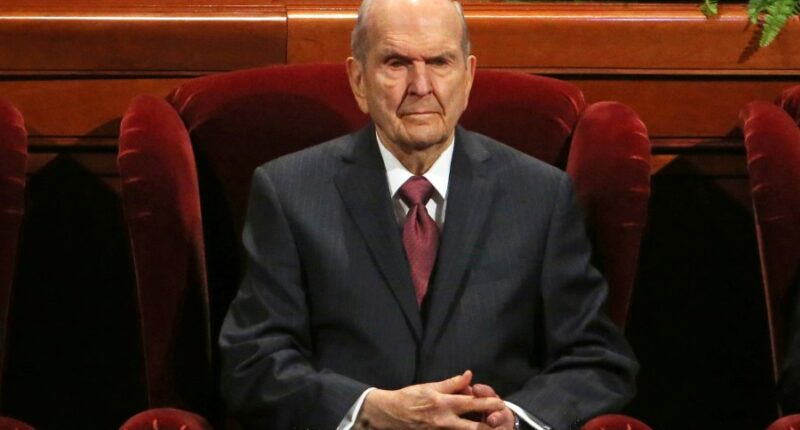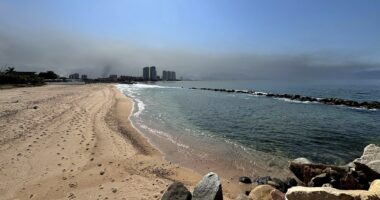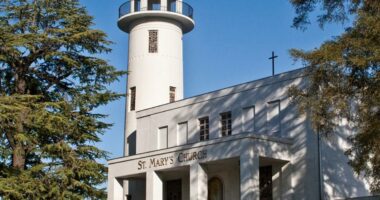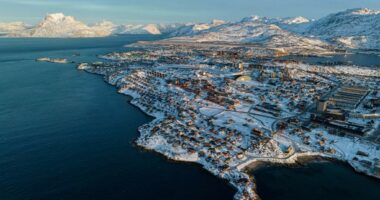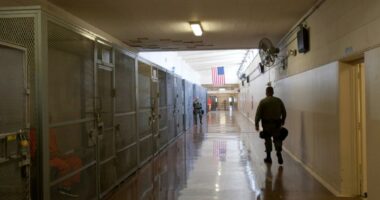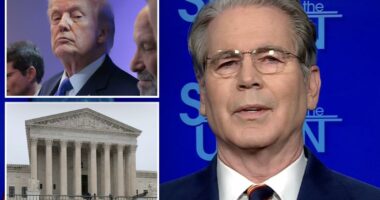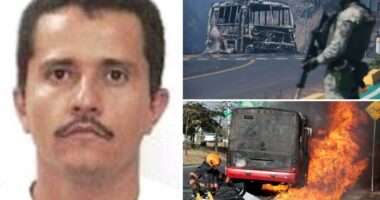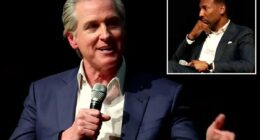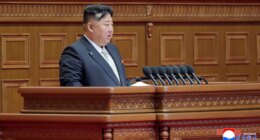Share this @internewscast.com

SALT LAKE CITY (AP) — Russell M. Nelson, the oldest-ever president of The Church of Jesus Christ of Latter-day Saints, passed away Saturday night at the age of 101, church officials confirmed.
Nelson died at his home in Salt Lake City, church spokesperson Candice Madsen said in a statement.
Nelson, who was a former heart surgeon, spent 40 years at the top levels of church leadership after his selection in 1984 to the esteemed church governing body known as the Quorum of the Twelve Apostles. He rose to the presidency in January 2018 following the death of Thomas S. Monson, and in 2024, he became the first president of the church to reach the age of 100.
The new president of the faith, commonly recognized as the Mormon church, has not yet been announced but is anticipated to be Dallin H. Oaks, following church practice. He is the next senior member of the church’s governing Quorum of the Twelve Apostles.
Sen. Mike Lee of Utah posted a warm tribute to Nelson on social media shortly after the announcement.
“For as long as I’ve known him, he has exuded — and for me, he’s come to personify — the kind of faith, humility, and quiet confidence that tends to be the constant companion of a devoted servant and follower of Jesus Christ,” Lee noted.
Nelson made significant changes to the church
The former heart surgeon led a dynamic and transformative leadership period, particularly in 2018, his inaugural year, when he made a notable declaration urging people to cease using the abbreviated terms “Mormon” and “LDS” in place of the religion’s full name, a significant change after past church leaders invested heavily in publicizing the nickname for years.
Nelson also garnered attention the following year when he reversed policies that prohibited baptisms for children of gay parents and identified same-sex couples as sinners subject to expulsion. These 2015 policies had sparked extensive criticism.
But even though Nelson’s administration was gentler and more welcoming to LGBTQ+ people than those of previous presidents, the church stance on same-sex marriage didn’t change. His administration also sharpened rules limiting the participation of members who pursue gender-affirming medical procedures or change their names, pronouns or how they dress, leading to criticism that it would marginalize transgender members.
Nelson and one of his top counselors described their approach to LGBTQ+ members as trying to balance the “love of the Lord and the law of the Lord.”
Presidents of the Utah-based faith are considered prophets who lead the church through revelations from God in collaboration with two top counselors and members of the Quorum of the Twelve.
Nelson was known for leading the church through the COVID-19 pandemic and severing the faith’s century-long ties with the Boy Scouts of America, creating the church’s own youth program that also could serve the more than half of its 17 million members who live outside the U.S. and Canada.
The disassociation came after the Boy Scouts of America decided to allow LGBTQ+ youth members and adult volunteers to join.
Tenure included scrutiny over abuse reports
During his tenure, long-simmering scrutiny swelled over the way the faith handles sexual abuse reports lodged with local leaders. An Associated Press investigation found the religion’s sexual abuse reporting hotline can be misused by its leaders to divert abuse accusations away from law enforcement and instead to church attorneys who may bury the problem, leaving victims in harm’s way.
Nelson and church leaders defended their practices, saying the hotline “has everything to do with protecting children and has nothing to do with cover-up.”
The church also faced scrutiny about closed door, one-on-one interviews between youth and local adult leaders where questions might arise about identity and sexuality.
The faith changed its guidelines to direct lay leaders never to disregard a report of abuse, a more direct instruction than previous guidelines. It also allowed children to bring a parent or adult with them during one-one-one interviews with local church leaders known as bishops.
Nelson expanded leadership and forged partnerships
Nelson also appointed non-American leaders to the all-white and mostly American top governing body and pushed to publish regional hymnbooks that celebrate local music and culture worldwide.
The president shortened Sunday services and accelerated a long-running push to build more temples, dotting the world with the faith’s lavish houses of worship despite resistance in some parts of the U.S.
He also forged a formal partnership with the NAACP. Until 1978, the church banned Black men from the lay priesthood, a policy rooted in the racist belief that black skin was a curse. The church disavowed the reasons behind the ban in a 2013 essay, but never issued a formal apology. It remains one of the most sensitive topics for the church.
Born in Salt Lake City in 1924, Nelson joined the religion in young adulthood. He was a doctor at the age of 22 and served a two-year Army medical tour of duty during the Korean War before resuming a medical career that included being director of thoracic surgery residency at the University of Utah.
Nelson was known for his skill of precision, which made him a successful surgeon during his time in church leadership. He had a reputation for stressing obedience to law and to what he called the “covenant path,” the series of ordinances and practices that mark a life in the faith, said Mormon scholar Matthew Bowman, a religion professor at Claremont Graduate Universities.
Nelson and his first wife, Dantzel White, had 10 children together. After she died in 2005, Nelson married Wendy Watson in 2006.
